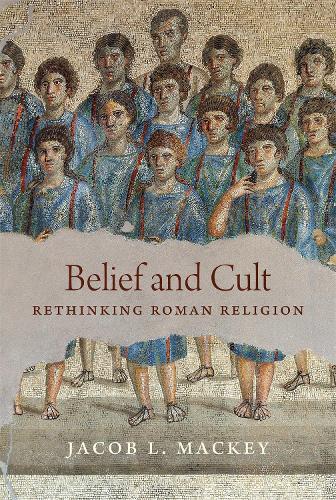
Belief and Cult: Rethinking Roman Religion
(Hardback)
Available Formats
Publishing Details
Belief and Cult: Rethinking Roman Religion
By (Author) Jacob L. Mackey
Princeton University Press
Princeton University Press
8th November 2022
United States
Classifications
General
Non Fiction
Ancient religions and Mythologies
Christian and quasi-Christian cults and sects
Literary studies: ancient, classical and medieval
292.07
Physical Properties
Hardback
496
Width 155mm, Height 235mm
Description
A groundbreaking reinterpretation that draws on cognitive theory to show that belief wasnt absent frombut rather was at the heart ofRoman religion
Belief and Cult argues that belief isnt uniquely Christian but was central to ancient Roman religion. Drawing on cognitive theory, Jacob Mackey shows that despite having nothing to do with salvation or faith, belief underlay every aspect of Roman religious practicesemotions, individual and collective cult action, ritual norms, social reality, and social power. In doing so, he also offers a thorough argument for the importance of belief to other non-Christian religions.
At the individual level, the book argues, belief played an indispensable role in the genesis of cult action and religious emotion. However, belief also had a collective dimension. The cognitive theory of Shared Intentionality shows how beliefs may be shared among individuals, accounting for the existence of written, unwritten, or even unspoken ritual norms. Shared beliefs permitted the choreography of collective cult action and gave cult acts their social meanings. The book also elucidates the role of shared belief in creating and maintaining Roman social reality. Shared belief allowed the Romans to endow agents, actions, and artifacts with socio-religious status and power. In a deep sense, no man could count as an augur and no act of animal slaughter as a successful offering to the gods, unless Romans collectively shared appropriate beliefs about these things.
Closely examining augury, prayer, the religious enculturation of children, and the Romans own theories of cognition and cult, Belief and Cult promises to revolutionize the understanding of Roman religion by demonstrating that none of its features makes sense without Roman belief.
Author Bio
Jacob L. Mackey is assistant professor of classics at Occidental College.
